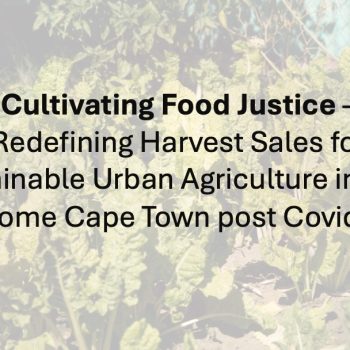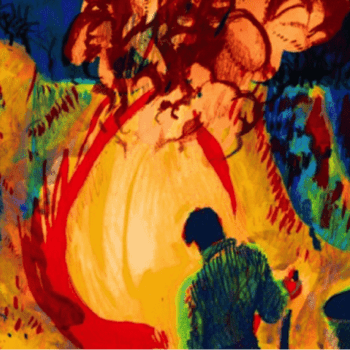About
The SUPE-Collective presents and develops engagement and intervention into the field of Urban Political Ecology. It seeks to provide a collaborative space for researchers from different institutions working in cities in the South and focused on developing urban political ecology.
The project emerged from ongoing debates and work at the ACC between 2011 and 2013 that brought together a shared desire to generate new contours of UPE through our growing and changing understanding of African urban environments. This resulted in a number of outputs, including: papers, conference sessions and presentations, a journal special issue, and an ongoing reading group. From this beginning and interactions with a range of scholars, activists and policymakers, discussions began to focus on ideas about creating a wider platform for collaboration that could disseminate ongoing research, provide a space for debate, to organize workshops to develop skills, and to bring in other partners to develop new research projects and explore radical and critical perspectives on African urban environments.
Aims and objectives
The SUPE-Collective was born in Durban, June 2013, designed as an ambitious, long term and international collaboration that aims to:
- generate critical understandings of African urban environments that span multiple different contexts.
- provoke debate and discussion concerning urban theory in African and wider global South cities, particularly in the fields of urban political ecology and environmental justice.
- support the development of early career urban researchers at African and wider global South universities.
Central to our project is our desire to provide learning opportunities for young researchers in African universities to develop critical skills needed to interrogate these dynamics. Whilst there is a vibrant culture of urban scholarship in Africa compared to other global regions, university departments engaging in these issues are often under-resourced and struggle to link into global networks of knowledge exchange and development.
Situating SUPE
SUPE builds on a number of different literatures and experiences:
1. The concern that urban environmental research in African cities is approached through conventional policy and practice. While there has been some research which has used the environmental justice lens, and some use of urban political ecology (UPE) there remains a paucity of critical research into African urban environments (Myers, 2008; Lawhon, 2013).
2. The call to seriously consider the relevance of urban theory for cities in the South, and allow for a wider range of cities to inform urban theory (Robinson 2006, Roy 2009). To provincialize (Chakrabarty, 2000) UPE is to develop a way of framing that is more attentive to subjectivity and situation and that can question taken-for-granted ideas in order to broaden the scope for theorizing with more urban experiences in mind.
3. Urban political ecologies, which have typically worked within a Marxist framing (Heynen et al., 2006). While there is much utility to this approach, we seek to expand the range of theoretical influences on UPE, especially in light of the call to provincialise urban theory.
A situated UPE creates the possibility for a broader range of urban experiences to inform theory on how urban environments are shaped, politicized and contested. It is not our intention to suggest that such a provincialization can only or even best be undertaken through engagement with African urban research, but to begin opening a space for the development of a more theoretically heterogeneous UPE.
Two key publications (in Antipode and Regional Studies), and more in progress, seek to conceptually frame the SUPE-Platform, bringing together these outlined concerns and providing our response to these imperatives.
![New Publication: Unlearning [un]located ideas in the provincialization of urban theory New Publication: Unlearning [un]located ideas in the provincialization of urban theory](https://www.africancentreforcities.net/wp-content/uploads/2016/05/640px-Alicia_Nijdam-rocinha-512x384-360x168.jpg)


